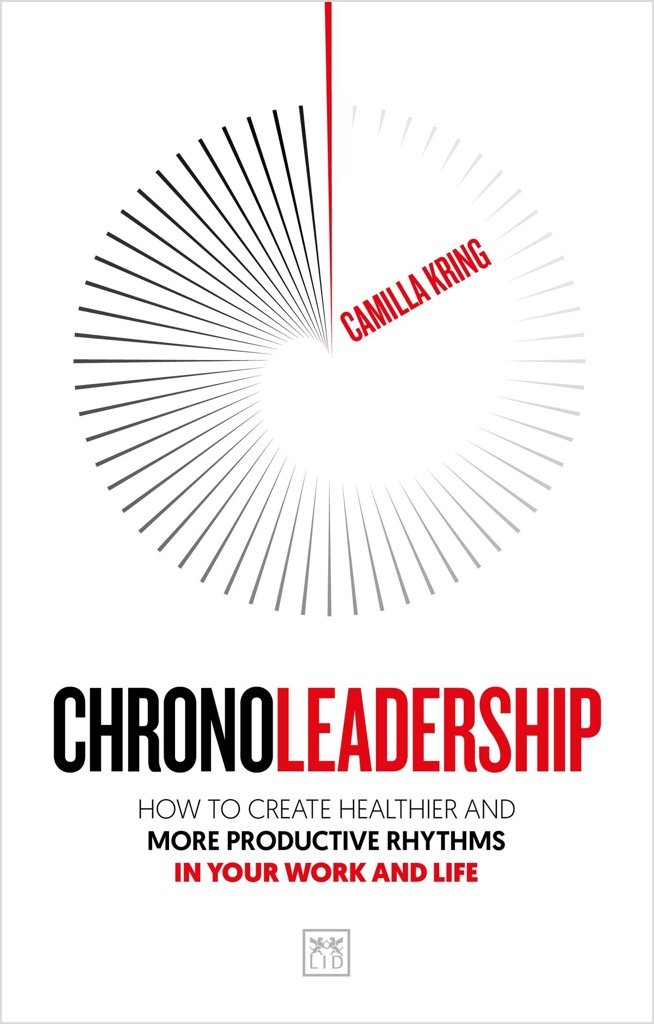 Billede 1 af
Billede 1 af


Chronoleadership
Our relationship with time governs how productive, efficient, happy and healthy our working lives are. Turns out, we’ve been using the wrong clock.
Our bodies are automatically regulated by an internal, rhythmic, biological process that determines whether we perform best early or late in the day. But we live and work in a rigid, nine-to-five world that favours morning people and actually stigmatizes evening people.
Originally invented by the first to own timepieces – monks, farmers and factory owners – this inflexible clock-watching is proven to be bad for productivity, health and wellbeing. Especially in the age of knowledge working and post-pandemic, working-from-home culture. Yet we continue to reward early risers and force evening people to perform against the wishes of their natural, internal timers.
In this groundbreaking and enlightening book, Camilla Kring gives us both the theory and the framework to create a workplace that supports morning and evening people equally. Everyone interested in creating a fairer, more inclusive and productive culture needs to know about ‘chronoleadership.’
Our relationship with time governs how productive, efficient, happy and healthy our working lives are. Turns out, we’ve been using the wrong clock.
Our bodies are automatically regulated by an internal, rhythmic, biological process that determines whether we perform best early or late in the day. But we live and work in a rigid, nine-to-five world that favours morning people and actually stigmatizes evening people.
Originally invented by the first to own timepieces – monks, farmers and factory owners – this inflexible clock-watching is proven to be bad for productivity, health and wellbeing. Especially in the age of knowledge working and post-pandemic, working-from-home culture. Yet we continue to reward early risers and force evening people to perform against the wishes of their natural, internal timers.
In this groundbreaking and enlightening book, Camilla Kring gives us both the theory and the framework to create a workplace that supports morning and evening people equally. Everyone interested in creating a fairer, more inclusive and productive culture needs to know about ‘chronoleadership.’
Our relationship with time governs how productive, efficient, happy and healthy our working lives are. Turns out, we’ve been using the wrong clock.
Our bodies are automatically regulated by an internal, rhythmic, biological process that determines whether we perform best early or late in the day. But we live and work in a rigid, nine-to-five world that favours morning people and actually stigmatizes evening people.
Originally invented by the first to own timepieces – monks, farmers and factory owners – this inflexible clock-watching is proven to be bad for productivity, health and wellbeing. Especially in the age of knowledge working and post-pandemic, working-from-home culture. Yet we continue to reward early risers and force evening people to perform against the wishes of their natural, internal timers.
In this groundbreaking and enlightening book, Camilla Kring gives us both the theory and the framework to create a workplace that supports morning and evening people equally. Everyone interested in creating a fairer, more inclusive and productive culture needs to know about ‘chronoleadership.’





